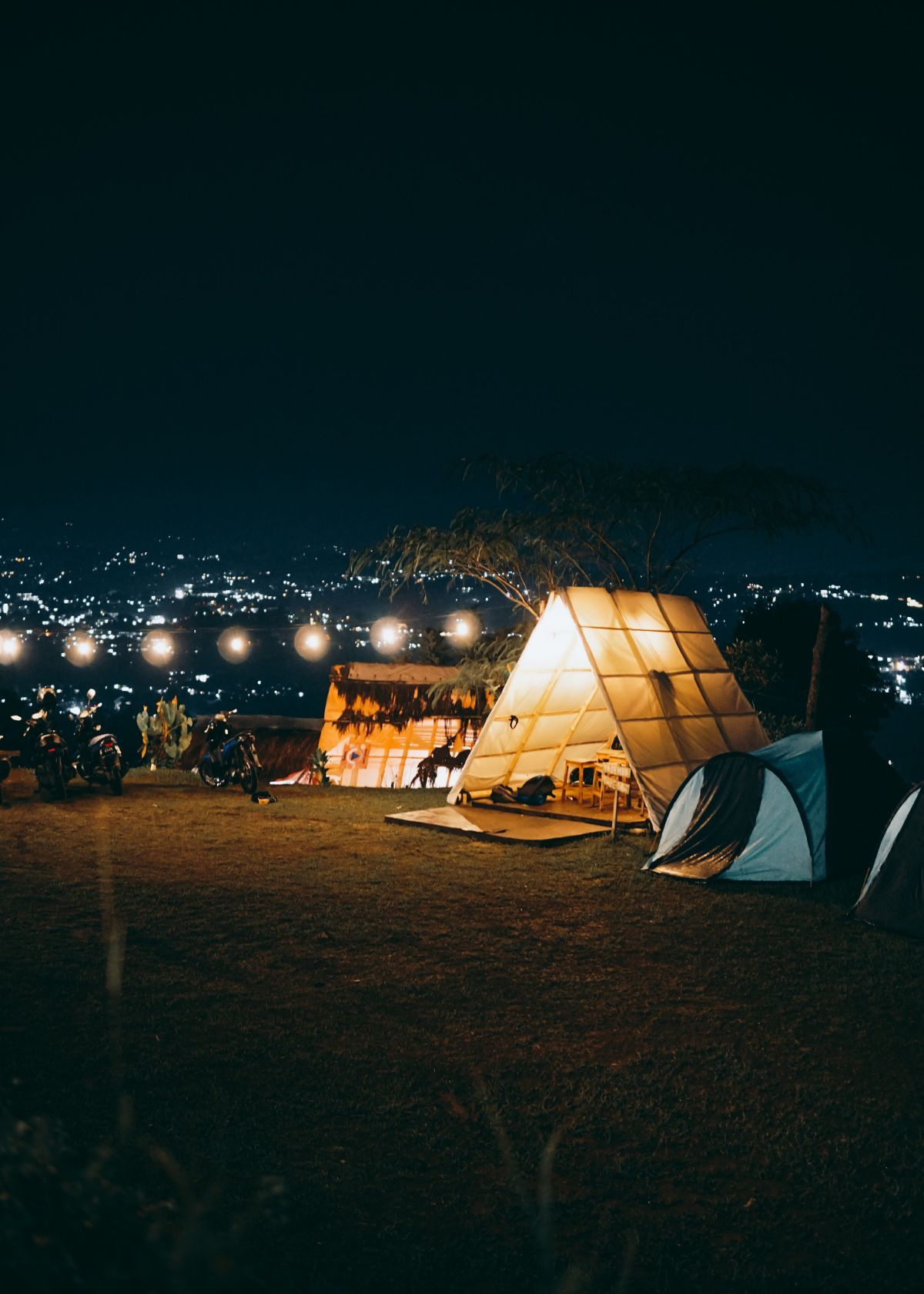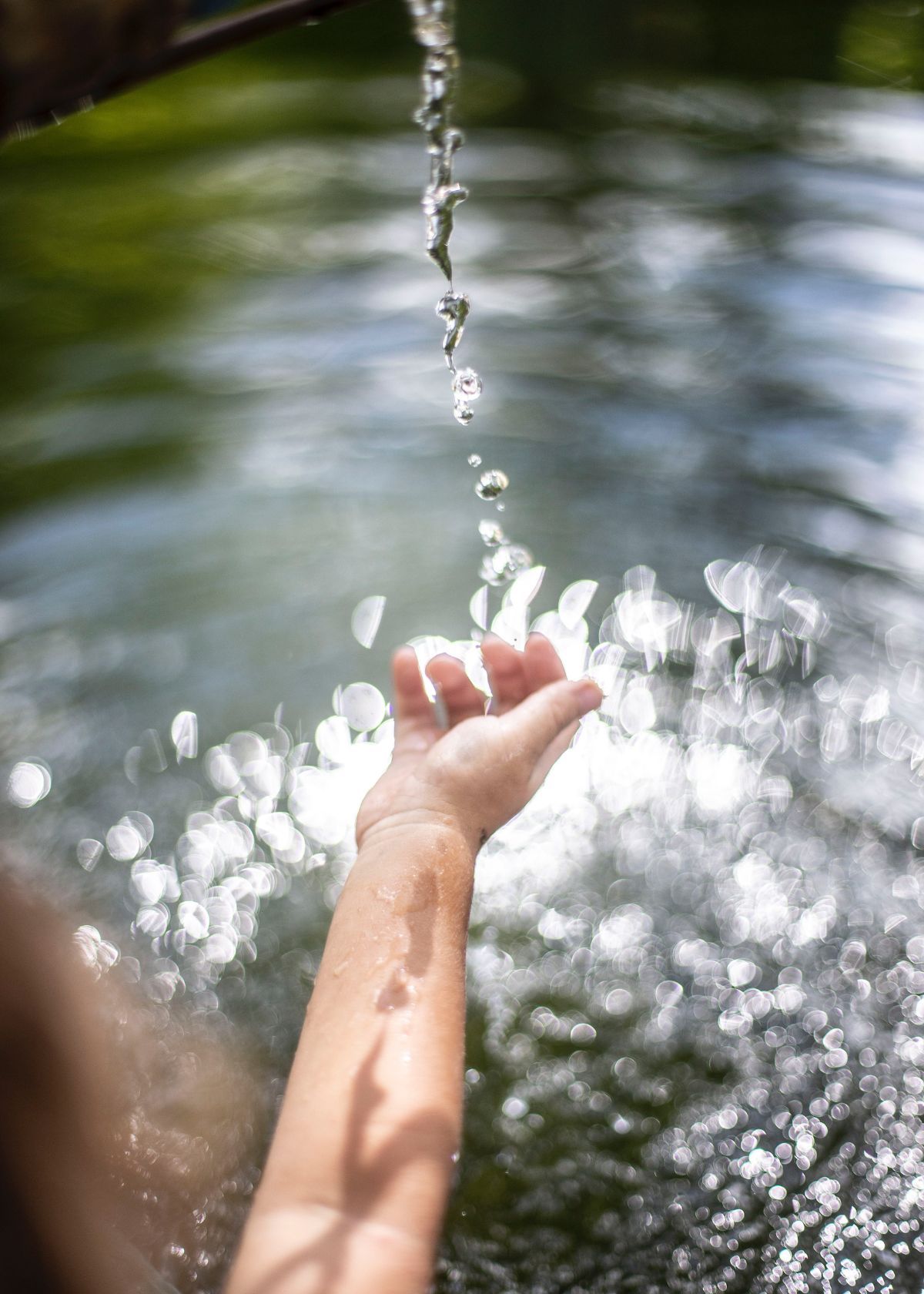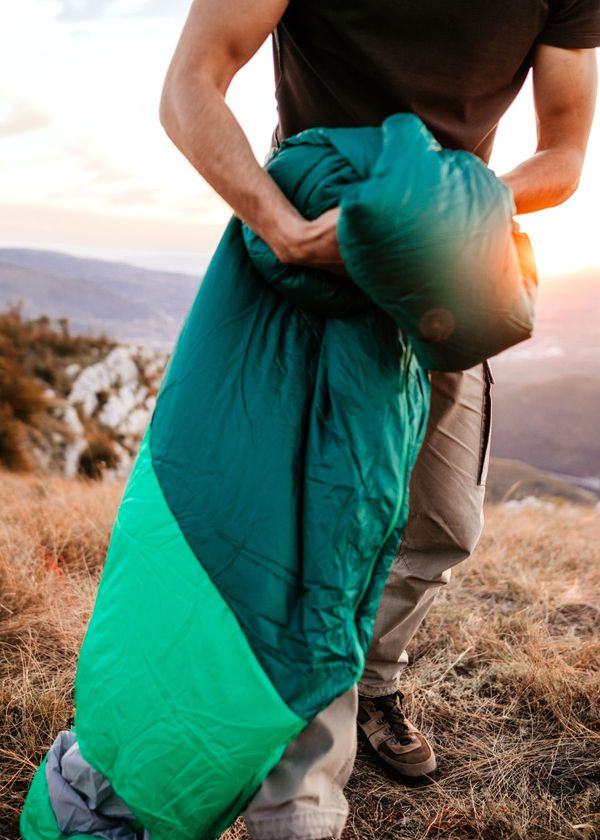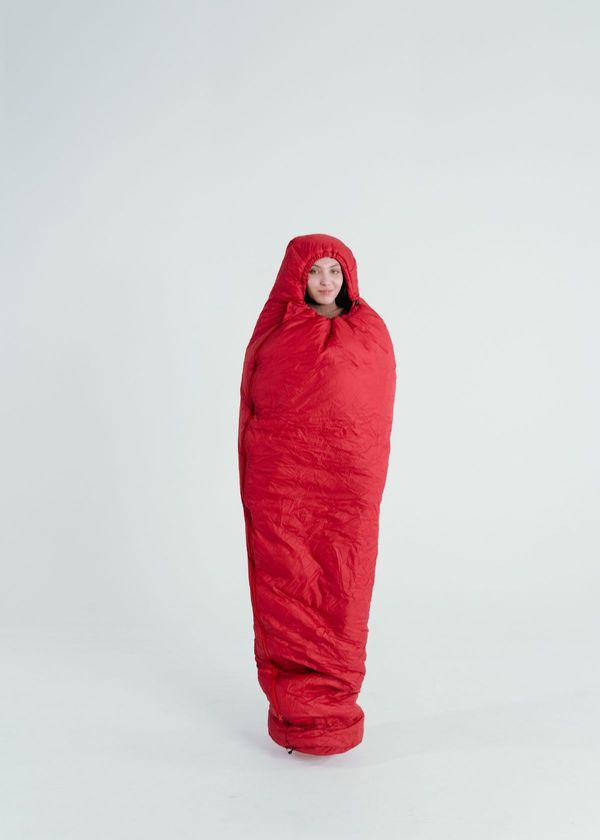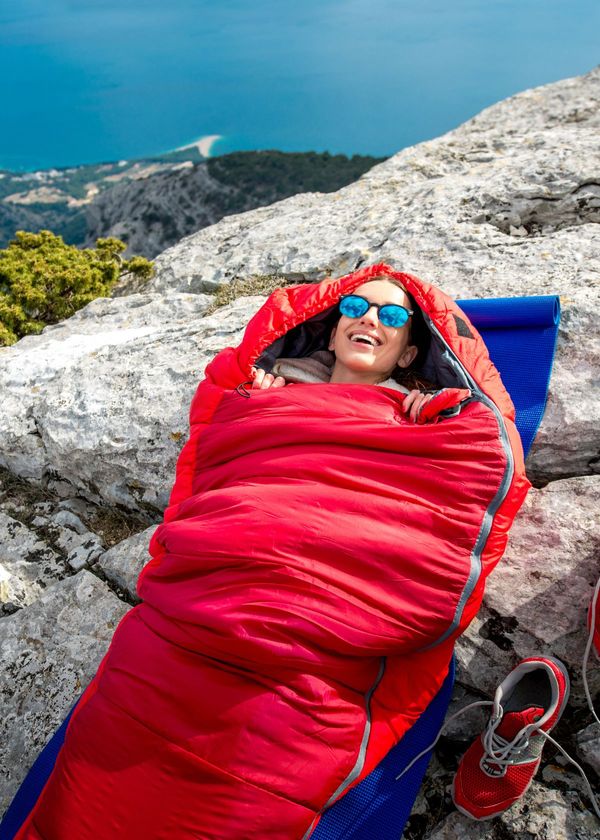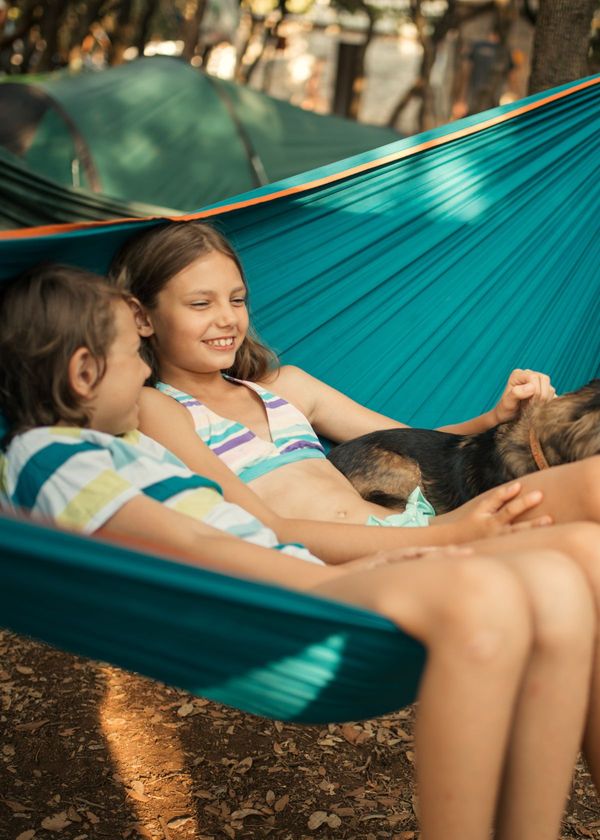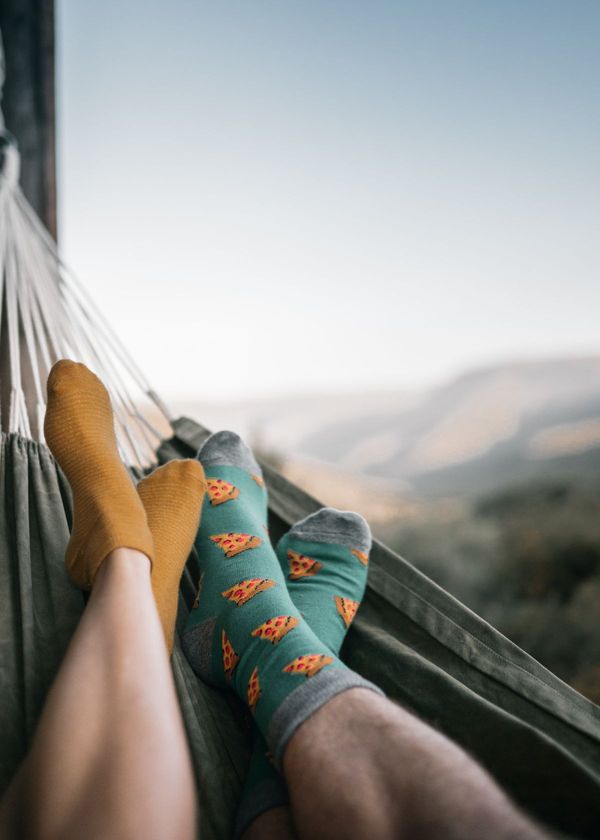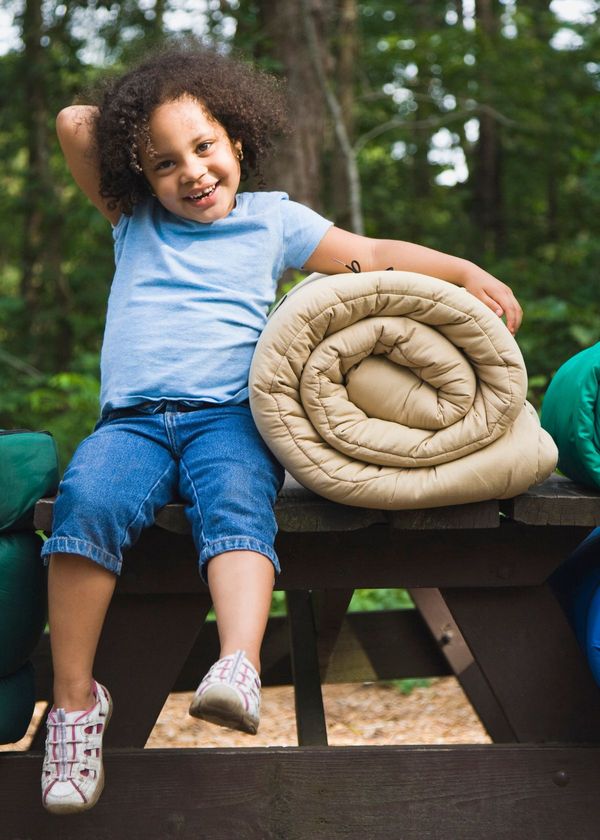Camping is an exhilarating experience, a chance to escape the hustle and bustle of city life, and immerse yourself in the great outdoors. Whether you're an experienced camper or a novice, you know that staying clean while camping is essential to have an enjoyable and comfortable experience.
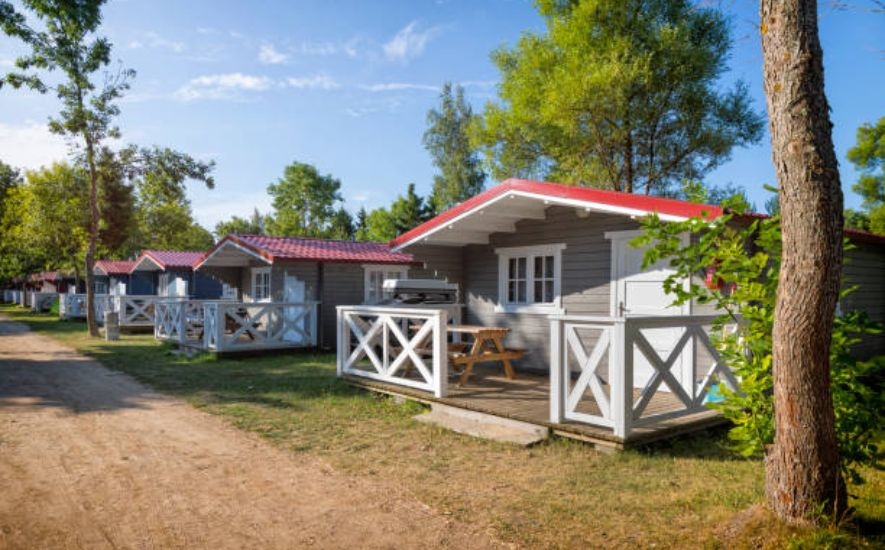
Camping can be messy, with dirt, mud, and grime everywhere. It's easy to get dirty, and it's even easier to stay that way. However, with a little planning and effort, you can maintain your hygiene while camping and keep yourself feeling fresh and clean.
This guide will explore some tips and tricks for staying clean while camping. From setting up a handwashing station, and washing dishes to choosing the right toiletries, we'll cover everything you need to know to keep yourself clean and healthy while enjoying the great outdoors.
So, if you're planning a camping trip soon and want to make sure you stay fresh and clean, read on to learn more. With a little preparation and some simple steps, you can enjoy your camping experience without sacrificing your cleanliness.
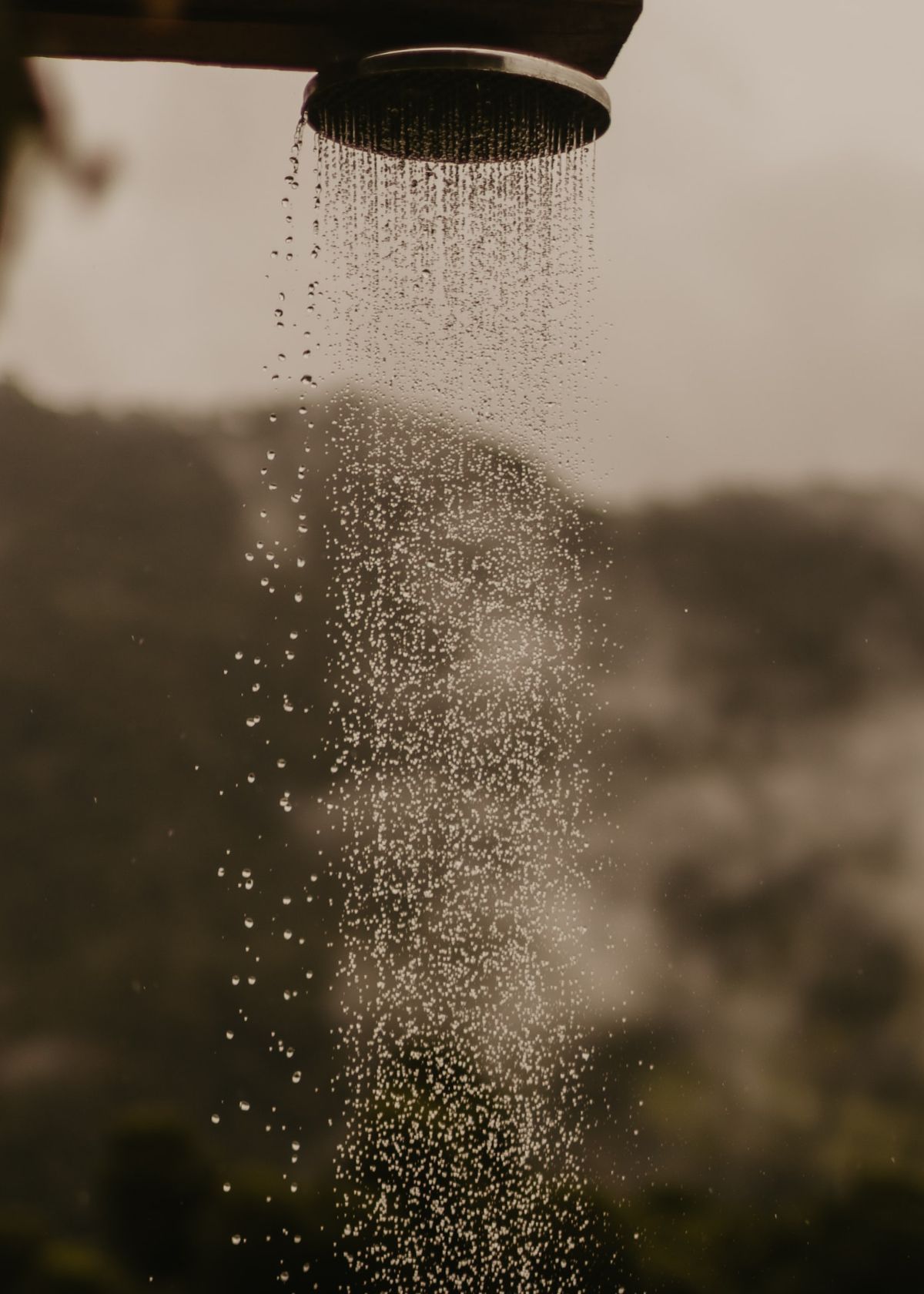
Minimalist Camper's Guide to Staying Clean
As a minimalist camper, staying clean is one of the most important aspects of your camping experience. A clean and organized campsite can help you feel more relaxed and comfortable and help you stay healthy and prevent the spread of bacteria and other harmful germs.
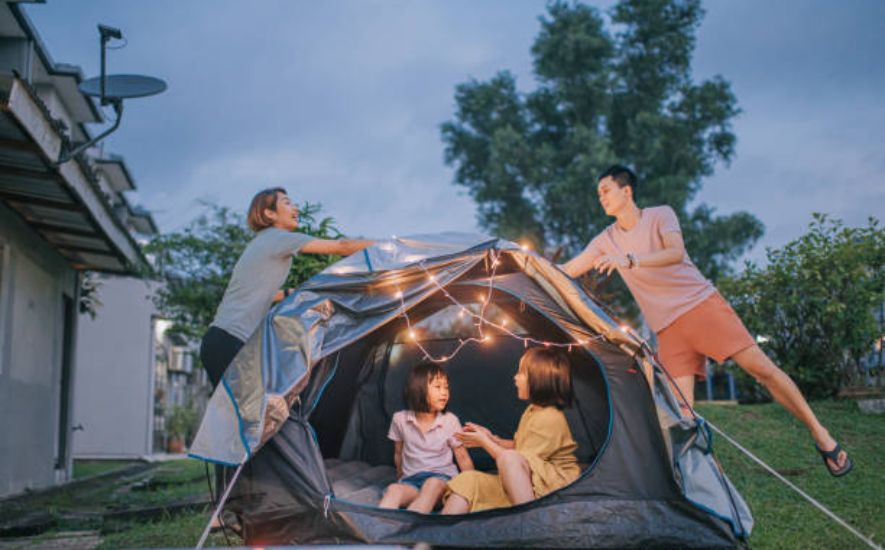
Keep it Simple
When it comes to staying clean while camping, the key is to keep things simple. You don't need a lot of fancy feminine hygiene products or complicated routines to stay clean. Instead, focus on the essentials: soap, water, and a few basic hygiene items.
Pack Smart
To stay clean while camping, it's important to pack smart. Choose items that are lightweight, compact, and easy to pack. Consider investing in travel-sized toiletries, reusable water bottles, and a portable camp shower.
Use Nature to Your Advantage
One of the great things about camping is being surrounded by nature. Take advantage of this by using natural resources to stay clean.
For example, you can use a nearby stream or lake to wash your hands or take a quick dip to freshen up. You can also use natural ingredients like baking soda and vinegar to clean your campsite and your gear.
Practice Good Hygiene
Good hygiene is essential when camping. Make sure to wash your hands regularly, especially before eating or handling food. Use hand sanitizer when soap and water are not available. Change and wash clothes regularly, and keep your campsite clean and organized.
Leave No Trace
As a minimalist camper, you understand the importance of leaving no trace. Make sure to dispose of all waste properly, including any hygiene items you may use. Follow Leave No Trace principles and leave your campsite cleaner than you found it.
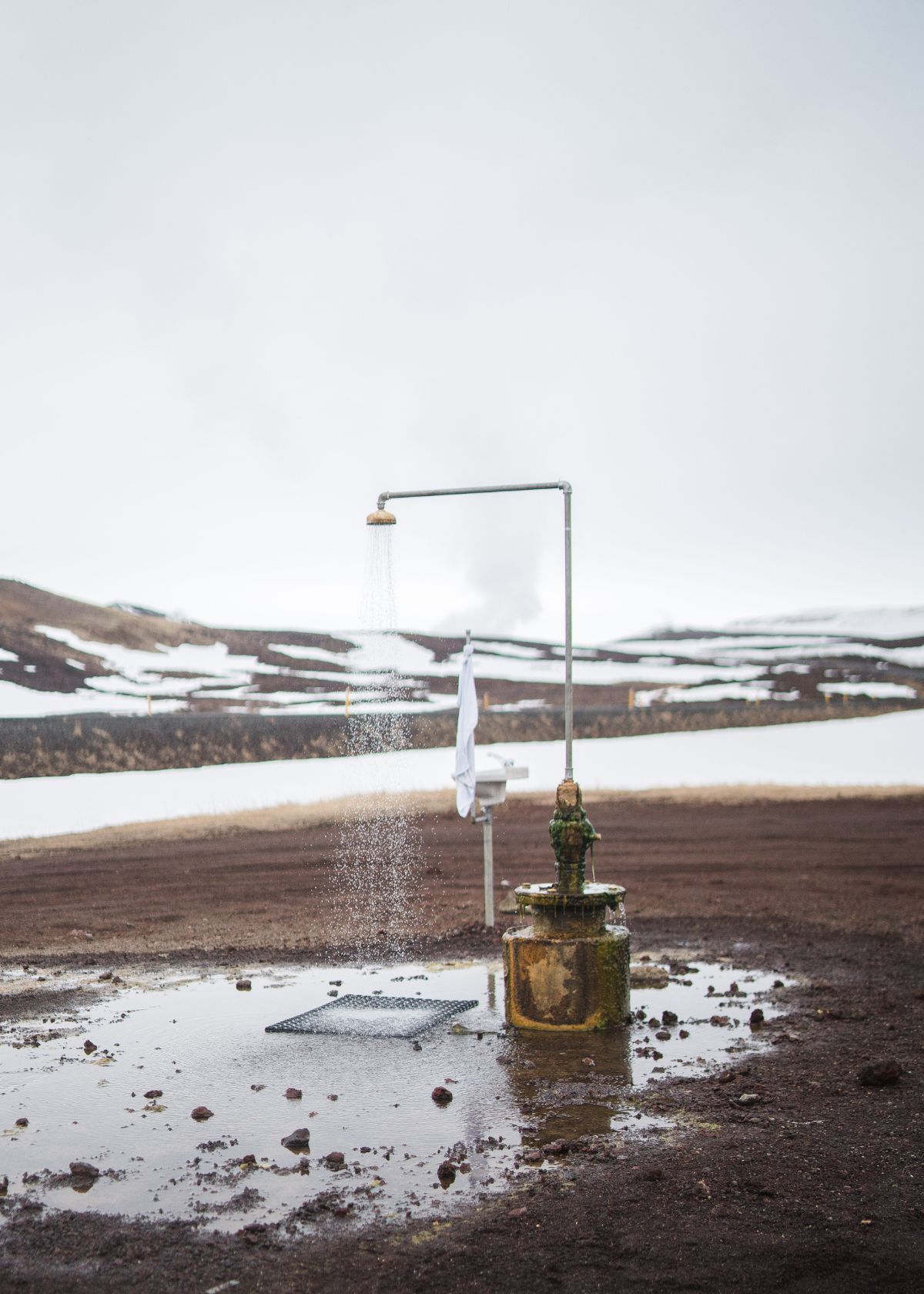
Campsite Hygiene 101
There’s nothing quite like camping in the great outdoors – breathing in the fresh air, sitting around a campfire with friends, and exploring nature.
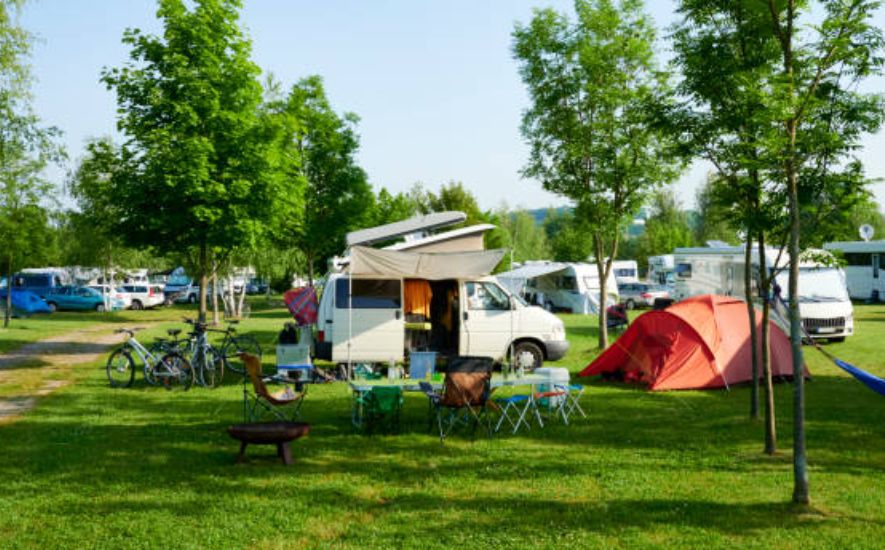
However, with all the fun and adventure, it’s important not to neglect hygiene. Good hygiene practices are essential for staying healthy and comfortable during your camping trip.
Personal Hygiene Tips for Campers
When you’re out in the wilderness, it’s easy to get dirty. Whether you’re hiking, cooking, or sitting by the fire, you’ll come into contact with dirt, dust, and other grime. That’s why it’s important to prioritize personal hygiene. Here are some tips to keep in mind:
- Bring a portable shower or set up a camp shower with a solar shower bag and some rope.
- Pack biodegradable soap and shampoo to avoid polluting water sources.
- Use wet wipes, a sponge bath, or a damp cloth to clean your face and body if you don't have access to a shower.
- Change your clothes regularly and keep them in a dry place.
- Bring a towel or a microfiber cloth to dry yourself after showering or swimming.
Campsite Hygiene Tips
Maintaining a clean and organized campsite is essential for personal hygiene and protecting the environment. Here are some tips to keep your campsite tidy and hygienic:
- Keep a separate bag or container for trash and dispose of it properly.
- Don't leave any food scraps or leftovers out as it can attract wildlife and create unsanitary conditions.
- Use a portable camping toilet, toilet paper, or dig a cat hole 6-8 inches deep at least 200 feet away from water sources and campsites.
- Clean your cooking utensils, pots, and pans with biodegradable soap and hot water after every meal.
- Store your food in airtight containers and keep them away from your sleeping bag liner.
Tips for Staying Hydrated and Healthy
Staying hydrated is crucial for your health during next camping trip. Here are some tips to help you stay hydrated and healthy:
- Drink plenty of water and avoid alcohol and caffeine as they can dehydrate you.
- Pack healthy snacks like fruits, nuts, and granola bars to keep your energy up.
- Carry a water filter or purifier to avoid drinking contaminated water from streams or rivers.
- Use insect repellent and wear protective clothing to avoid insect bites and tick-borne illnesses.
- Wash your hands frequently with soap and water or use hand sanitizer to prevent the spread of germs.
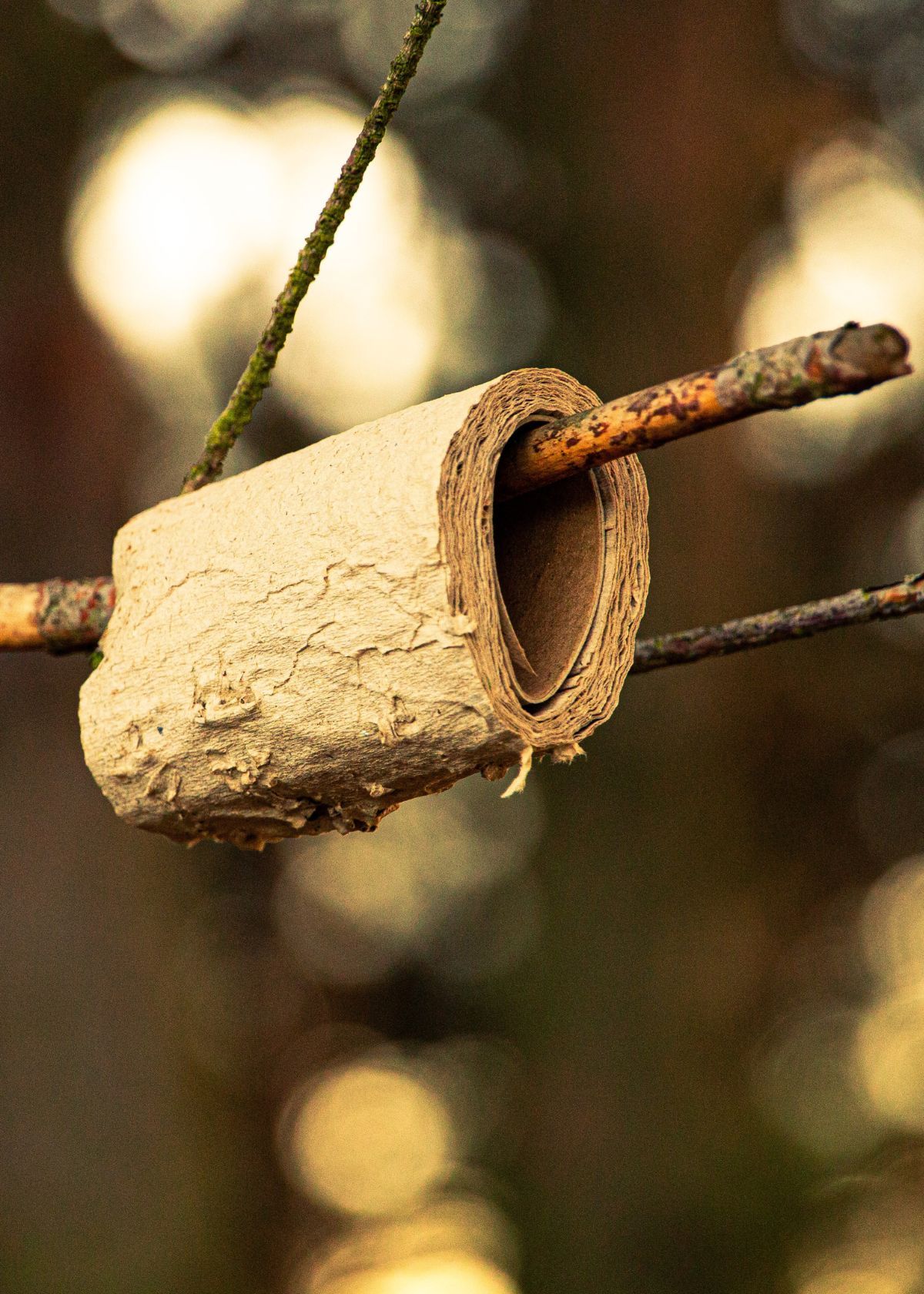
Staying Fresh on the Trail
Camping is an adventure that many of us cherish as it allows us to escape the hustle and bustle of city life and connect with nature.
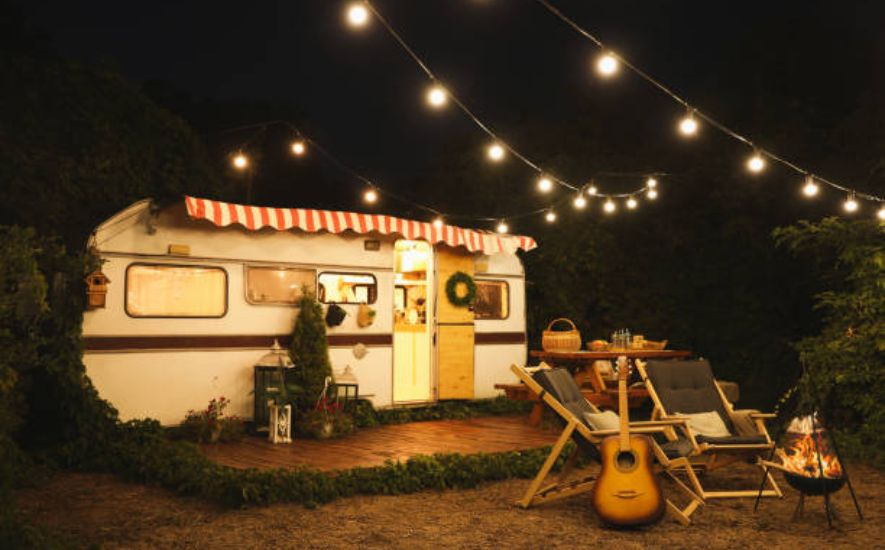
Whether you are a seasoned camper or just starting, staying fresh on the trail can be challenging. With the right approach and a few tricks up your sleeve, staying fresh and comfortable while enjoying the great outdoors is possible.
Choose the Right Clothing
Wearing the right clothing is one of the most important factors in staying fresh while camping. Cotton clothing is not a good choice as it absorbs sweat and takes a long time to dry.
Opt for synthetic materials that are quick-drying and moisture-wicking. Avoid wearing tight clothing as it can restrict airflow and cause sweating.
Practice Good Hygiene
Good hygiene is essential for staying fresh on the trail. Bring along wet wipes, hand sanitizer, and biodegradable soap to keep yourself clean. Use wet wipes to clean your face, hands, and armpits regularly. Wash your hands with hand sanitizer or soap and water before and after meals and after using the restroom.
Choose the Right Campsite
Choosing the right campsite can make a big difference in staying fresh on the trail. Look for a well-ventilated campsite and not too close to water sources.
Water sources attract insects, which can be a nuisance. Choose a campsite that is away from high-traffic areas and has plenty of shade.
Stay Hydrated
Staying hydrated is essential for staying fresh while camping. Dehydration can cause fatigue and make you feel uncomfortable. Bring a water filter or purification tablets to ensure you have access to clean drinking water. Drink plenty of water throughout the day, even if you do not feel thirsty.
Use Natural Remedies
Using natural remedies can help you stay fresh on the trail. Tea tree oil is a natural antiseptic that can help prevent infections. Lavender oil can help you relax and sleep better at night. Peppermint oil can help relieve headaches and soothe insect bites.
Pack the Right Gear
Packing the right gear is essential for staying fresh on the trail. Bring along a lightweight, compact towel that dries quickly.
A portable shower is a great way to stay clean and fresh on the trail. Consider bringing a portable or battery-operated fan to help you stay cool.
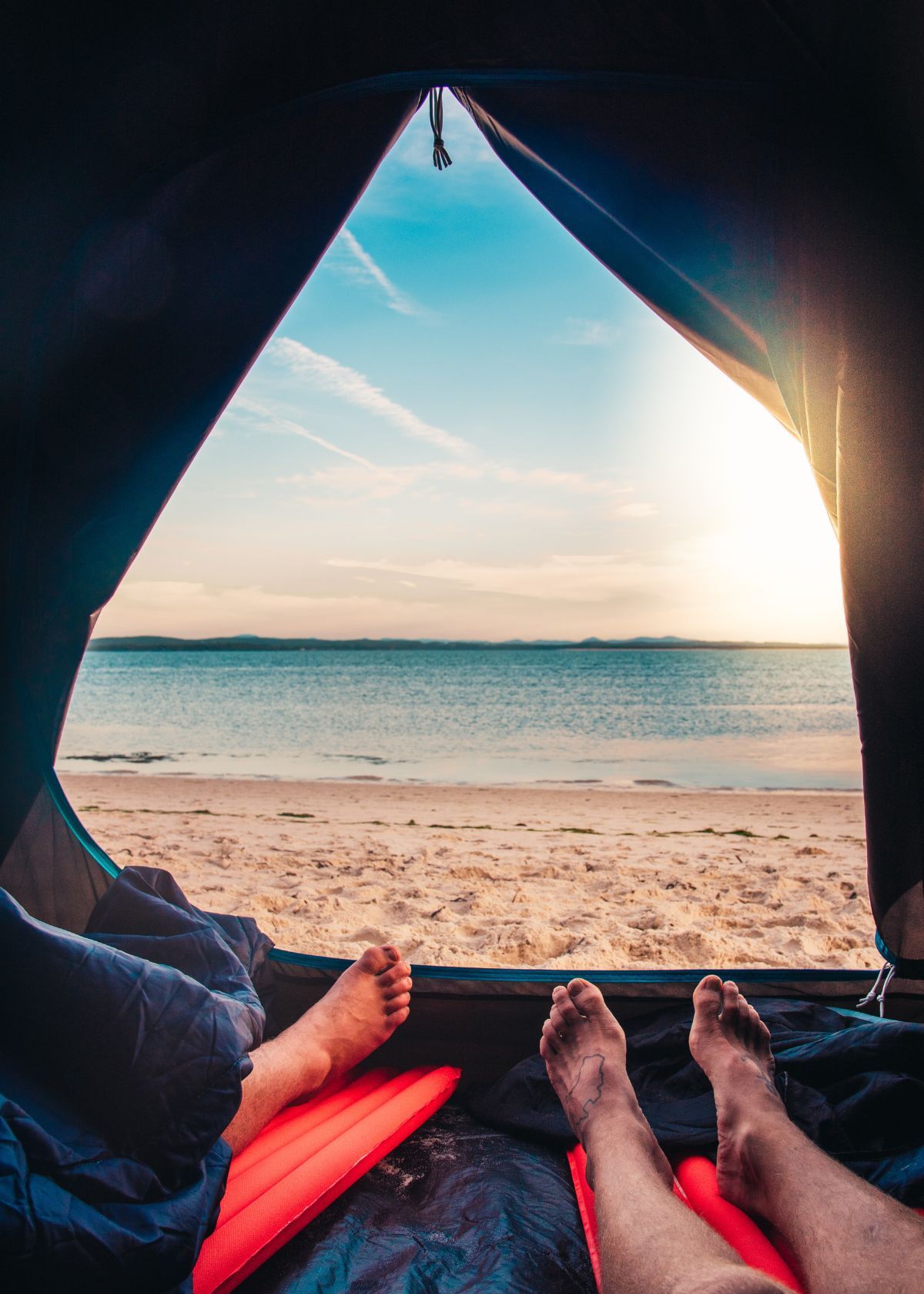
Hygiene Habits of Experienced Campers
For many, camping is a beloved pastime. The fresh air, the beautiful scenery, and the sense of adventure all come together to create a unique and unforgettable experience.
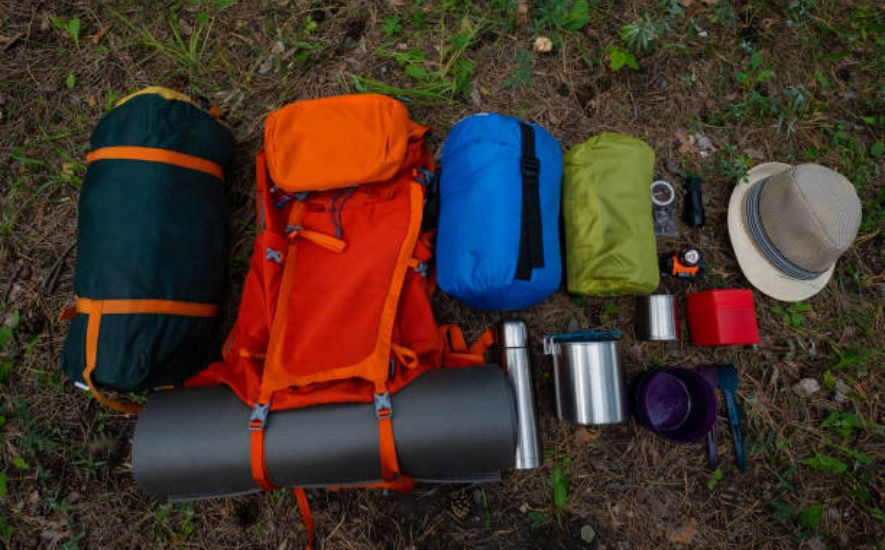
But, with the great outdoors comes the need for proper hygiene practices. Experienced campers know that maintaining good hygiene while camping is essential to staying healthy and comfortable.
Pack the Essentials
Experienced campers know that packing the right gear is essential to maintaining proper hygiene while camping.
Pack a toothbrush, toothpaste, and a good quality soap. Bring along a towel and some wet wipes for quick cleanups. Don't forget to pack a first aid kit as well, which should include items such as hand sanitizer, insect repellent, and sunscreen.
Stay Clean
One of the biggest challenges when camping is staying clean. Experienced campers know that taking a shower isn't always an option, so they make do with what they have. Bring along a portable shower, or use a nearby stream or lake for a quick dip.
Use biodegradable soap to avoid polluting the environment. Don't forget to wash your hands regularly, especially before preparing and eating food.
Maintain Personal Hygiene
Experienced campers know that personal hygiene is just as important as environmental hygiene. Brush your teeth twice a day, and use mouthwash to keep your breath fresh.
Use deodorant to avoid body odor, and change your clothes regularly. Pack a nail clipper and keep your nails short to avoid dirt buildup.
Dispose of Waste Properly
Experienced campers know that properly disposing of waste is essential for personal hygiene and environmental health.
Bring along a portable toilet or use a designated campsite restroom. If there are no restrooms available, dig a small hole and bury your waste. Always pack out your trash and dispose of it properly.
Stay Hydrated
Experienced campers know that staying hydrated is essential to maintaining good hygiene. Drink plenty of water to flush out toxins and keep your skin and hair healthy. Avoid alcohol and sugary drinks, which can dehydrate you and lead to body odor.
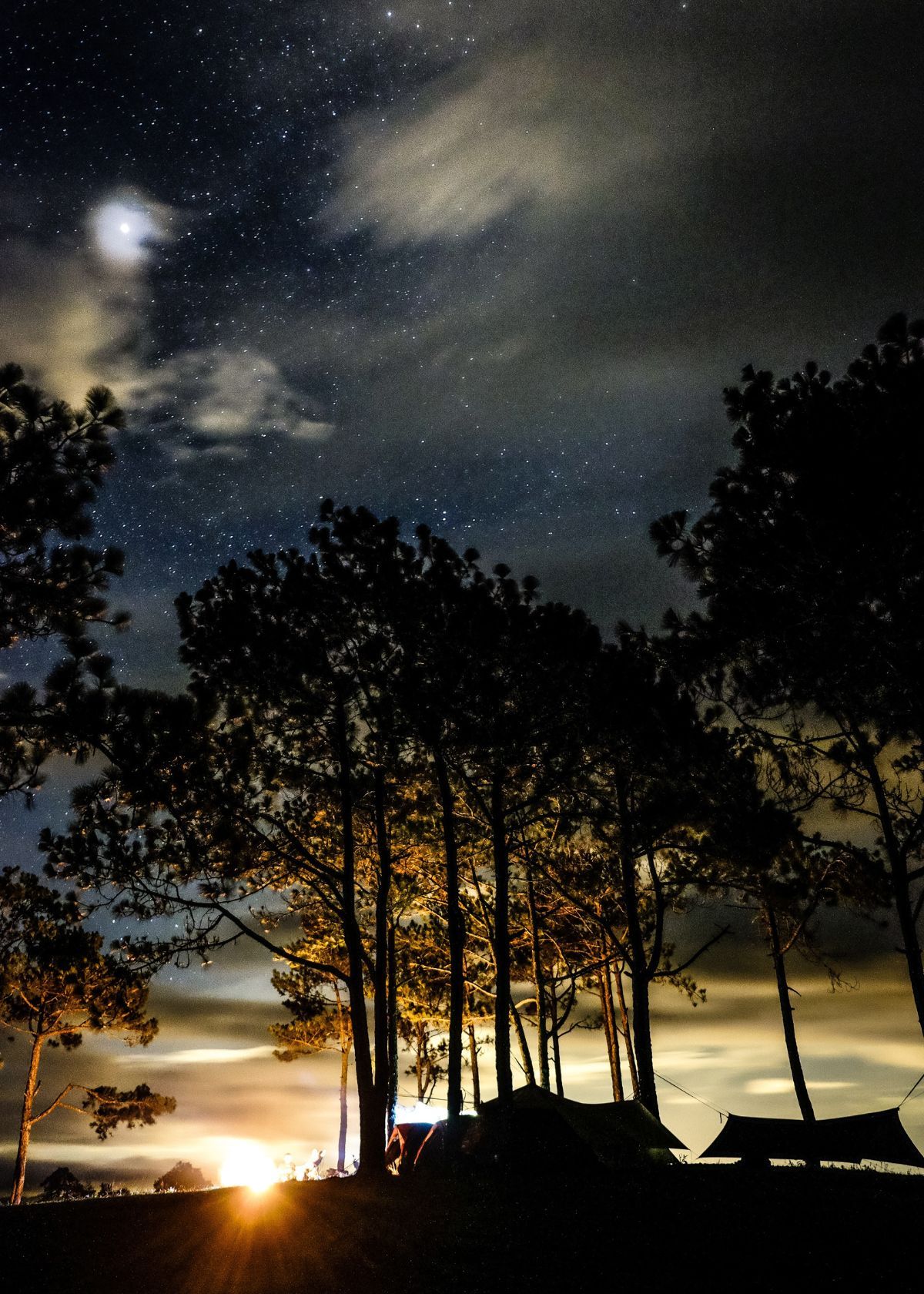
Surviving Without Showers
Ah, the great outdoors! The smell of fresh pine, the sound of a bubbling creek, the warm glow of a campfire...and the stench of sweat and dirt that comes with surviving without showers while camping.
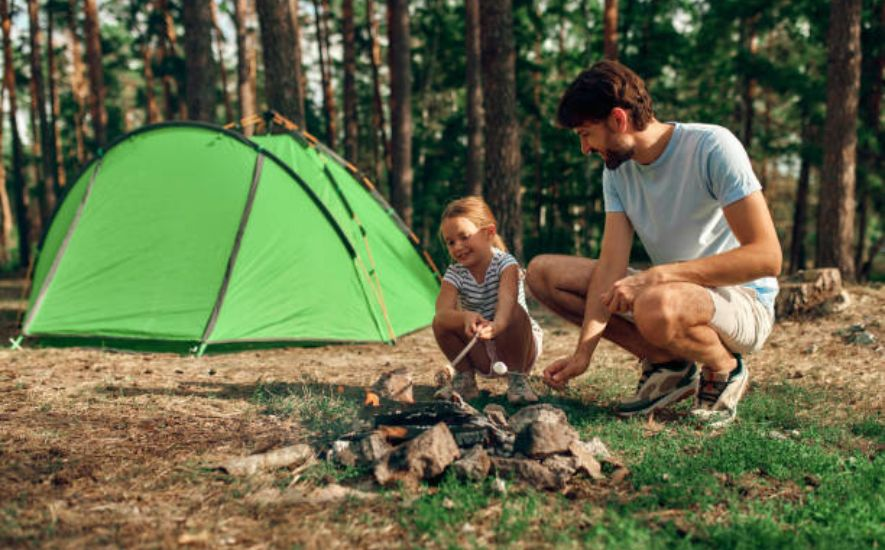
While the beauty of nature is undeniable, personal hygiene can be a real challenge when you're miles away from civilization. But fear not, my adventurous friends!
Embrace the Baby Wipes
When you're out in the woods, a package of baby wipes can be your best friend. Not only are they great for cleaning up after meals, but they can also be used to freshen up your face, armpits, and other areas that tend to get sweaty and smelly. Plus, they're small and easy to pack, so you can take them with you wherever you go.
Make Dry Shampoo Your BFF
If you need to wash your greasy hair every day, you might struggle with the lack of showers in the great outdoors. But fear not! Dry shampoo is here to save the day. Simply sprinkle some onto your roots, brush it through your hair, and voila! You'll look and feel much fresher.
Take a Dip in the Lake
One of the best things about camping is being surrounded by nature's beauty, including bodies of water. Take advantage of it if you're lucky enough to be near a lake or river! A quick dip can help wash away sweat and grime and leave you feeling refreshed and revitalized.
Invest in a Portable Shower
If you're going to be camping for an extended period of time, or if you're just someone who really values camping hygiene hacks, you might want to consider investing in a portable shower. These handy devices come in various shapes and sizes, from simple bags that you can hang from a tree to more complex systems that use solar power to heat the water.
Frequently Asked Questions (FAQs)
Camping is a great way to connect with nature, but it can also leave you feeling dirty and grimy, and fortunately, staying clean while camping doesn't have to be a challenge. With a few simple FAQs, you can keep yourself feeling fresh and clean, no matter how long you're in the great outdoors.
How do you deal with not showering while camping?
While camping, it's not always possible to shower every day. However, there are ways to stay clean and comfortable. One way is to use dry shampoo to absorb oil and sweat from your hair.
You can also use baby powder or cornstarch to absorb sweat and moisture from your skin. Wearing clean, moisture-wicking clothing can also help prevent body odor.
It's important to change your clothes and underwear regularly and to wash them if possible. Finally, maintaining good personal hygiene, such as brushing your teeth and washing your hands, can help you feel clean and refreshed.
How do you stay clean when wild camping?
When wild camping, it's important to minimize your impact on the environment while still maintaining good personal hygiene.
One way to stay clean is to use wet wipes or a washcloth to clean yourself. If you have access to a nearby stream or lake, you can also take a dip to freshen up.
It's important to use biodegradable soap and not pollute the water source. Using dry shampoo, baby powder, or cornstarch can also help absorb sweat and moisture.
Wearing clean, moisture-wicking clothing can help prevent body odor. Remember to change your clothes and underwear regularly and to wash them if possible.
How often do you shower when camping?
The frequency of showering when camping depends on various factors, such as personal preference, access to water, and the length of the camping trip.
Some people prefer to shower daily, while others may go several days without showering. When water is scarce, it's important to prioritize drinking and cooking over showering.
However, it's important to maintain good personal hygiene, such as washing your hands and brushing your teeth, even if you don't shower as frequently as you would at home.
Ultimately, the decision of how often to shower when camping is up to the individual and their unique circumstances.
Conclusion
In conclusion, staying clean while camping doesn't have to be daunting. With a little bit of planning and the right supplies, you can easily maintain your personal hygiene and enjoy your time in the great outdoors without feeling grimy or uncomfortable. Pack biodegradable soap, plenty of water, and a good-quality towel.
Additionally, keep in mind that cleanliness isn't just about physical hygiene; it also involves respecting the environment and leaving no trace behind. So, follow the "leave no trace" principles and be mindful of your impact on the natural world.
With these tips in mind, you can fully embrace the beauty and simplicity of camping while still feeling fresh and clean.
